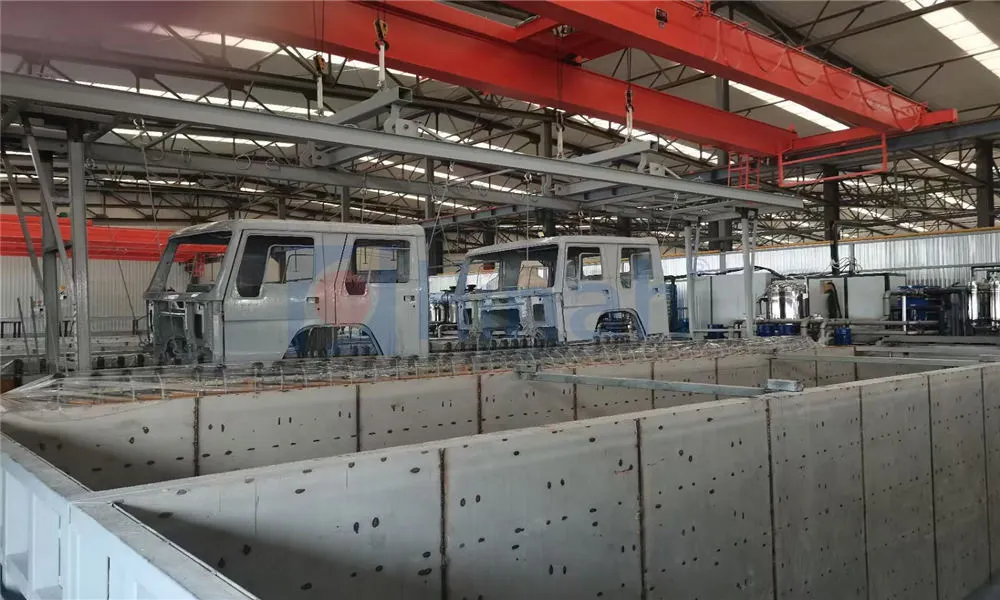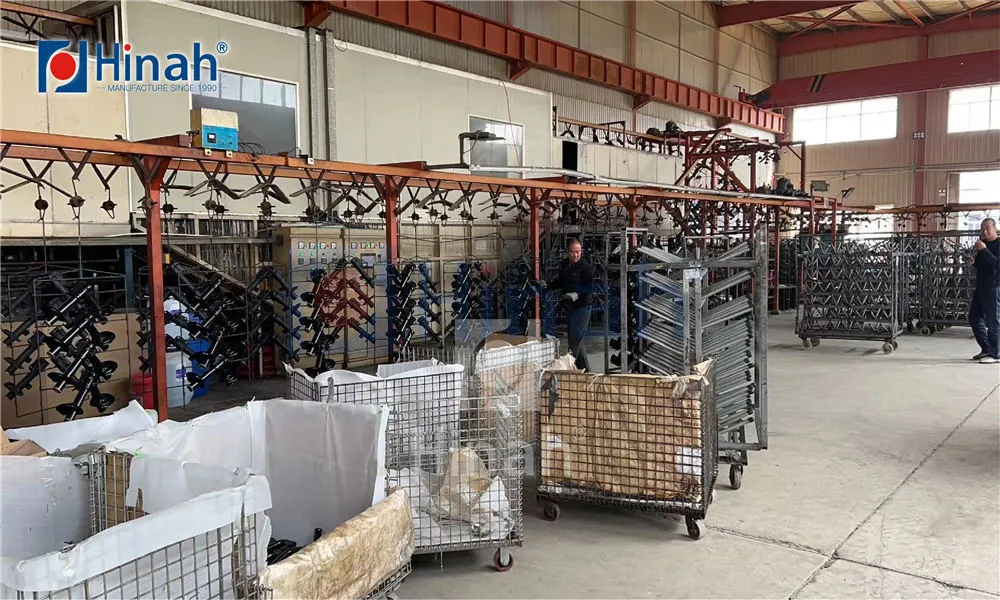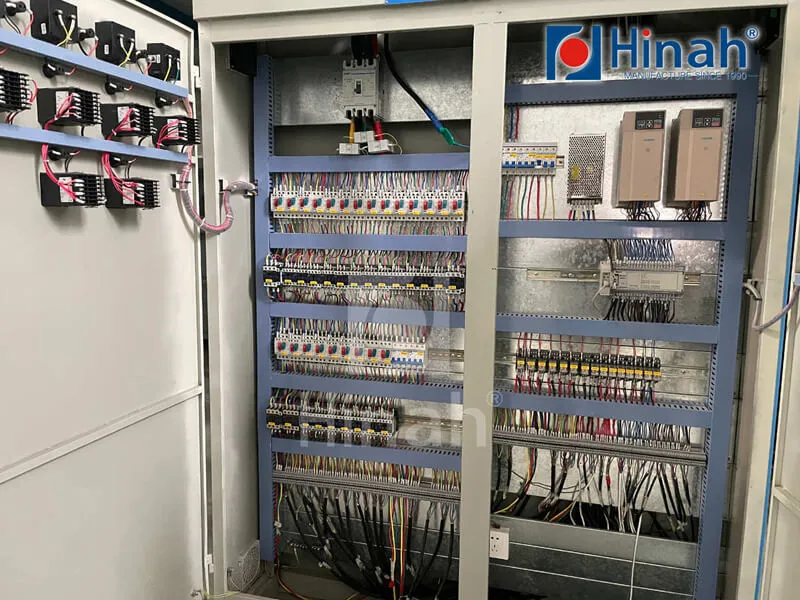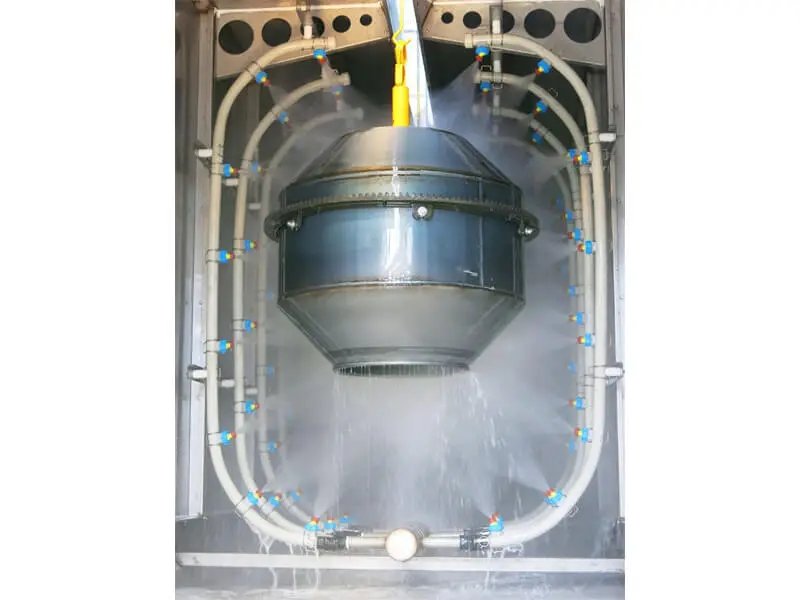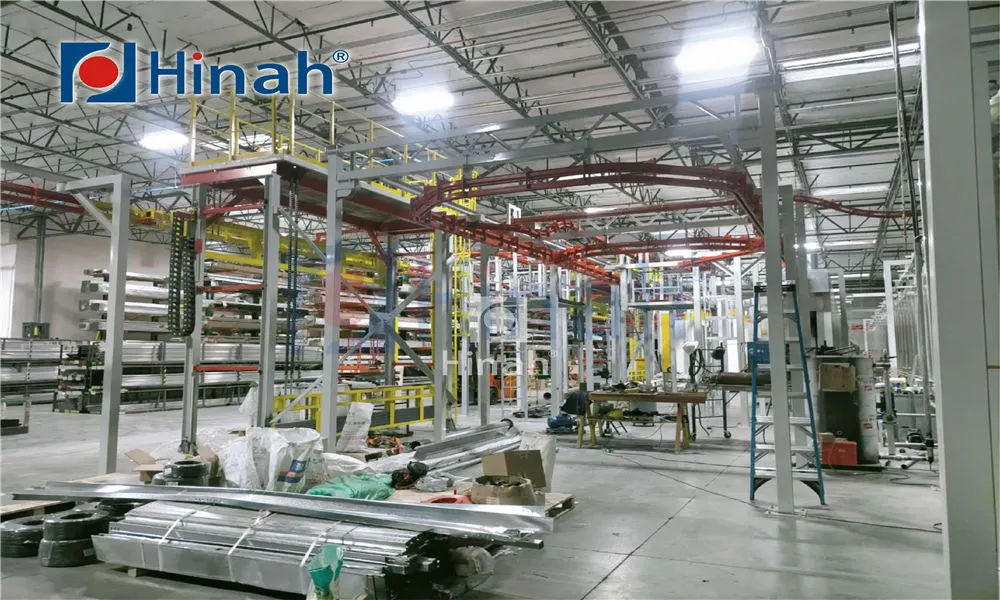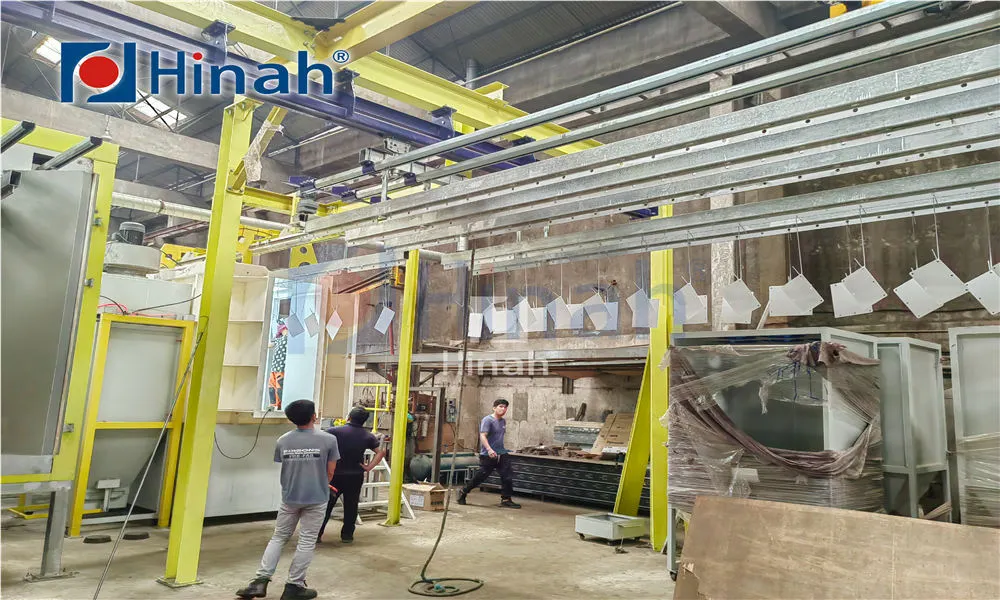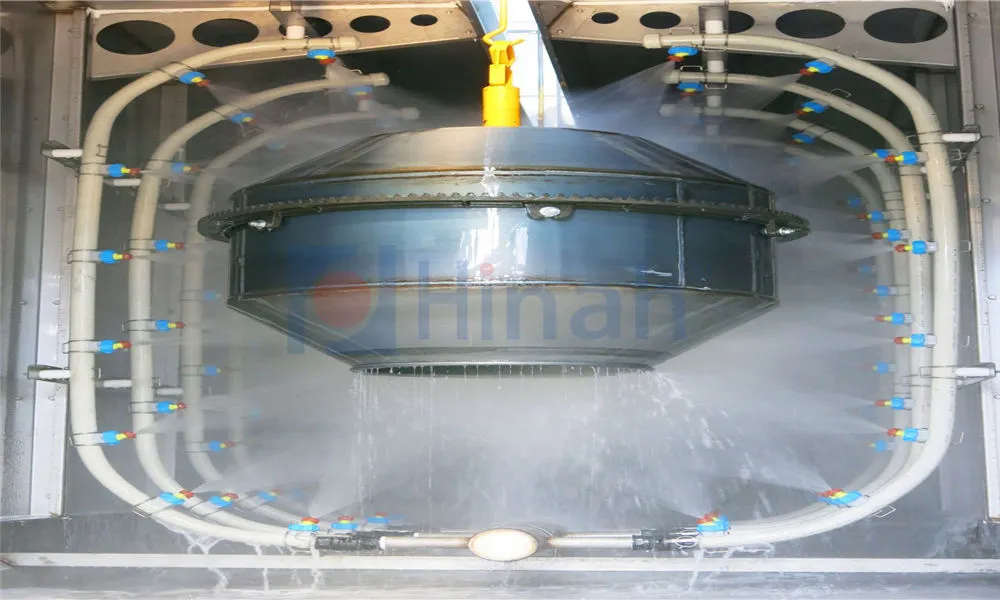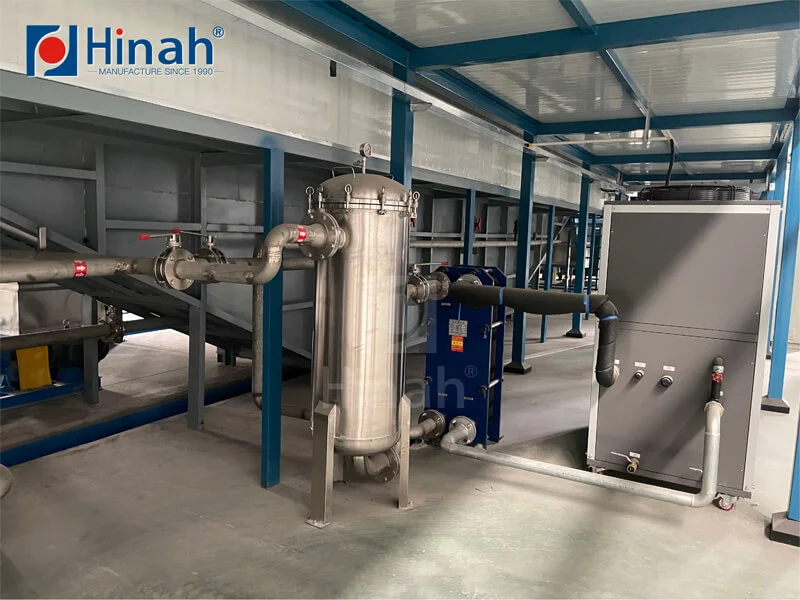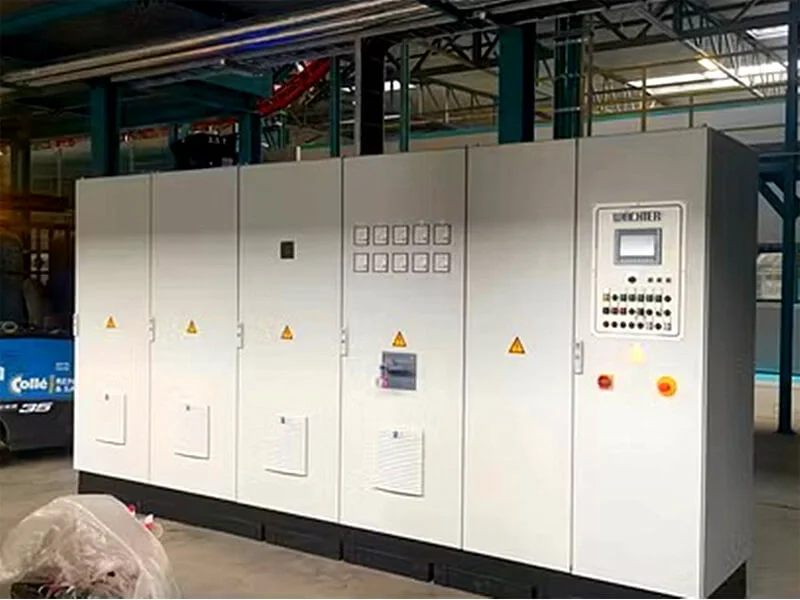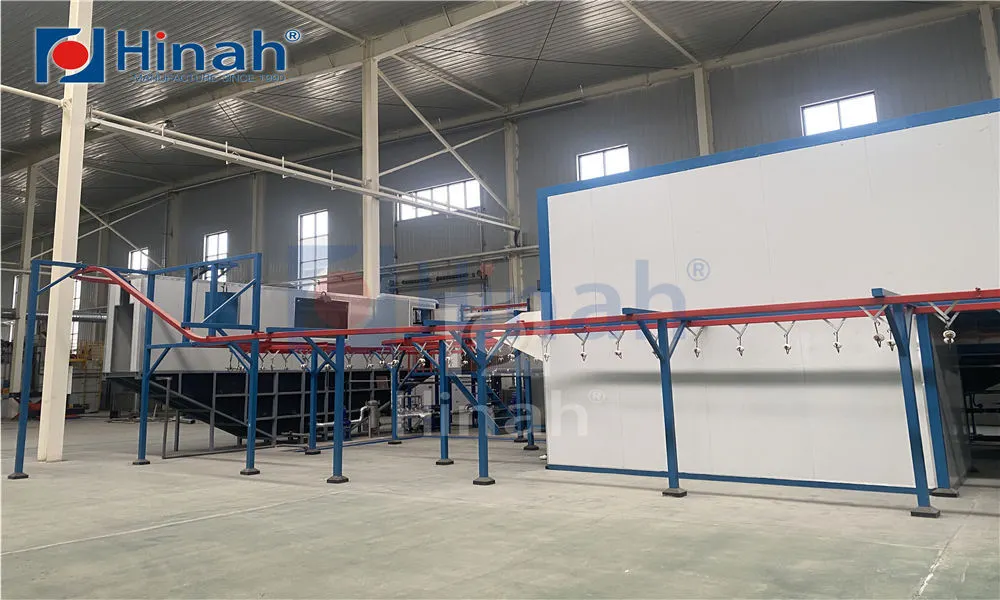Powder coating conveyor systems are the backbone of modern industrial finishing processes, providing efficient, consistent, and eco-friendly solutions for coating a wide range of products. From automotive parts to furniture and appliances, these systems ensure uniform application of powder coatings, enhancing durability and aesthetics. As industries evolve, the demand for tailored solutions has grown, making it essential to understand key aspects like custom powder coating conveyor system options, the role of powder coating conveyor system integrators, factors affecting powder coating conveyor price, and reputable powder coating conveyor manufacturers. This article delves into seven critical facets of these systems, offering insights to help businesses optimize their operations. Whether you're upgrading an existing line or investing in a new setup, this comprehensive overview will guide you through the essentials, ensuring you make informed decisions that align with your production needs and budget.
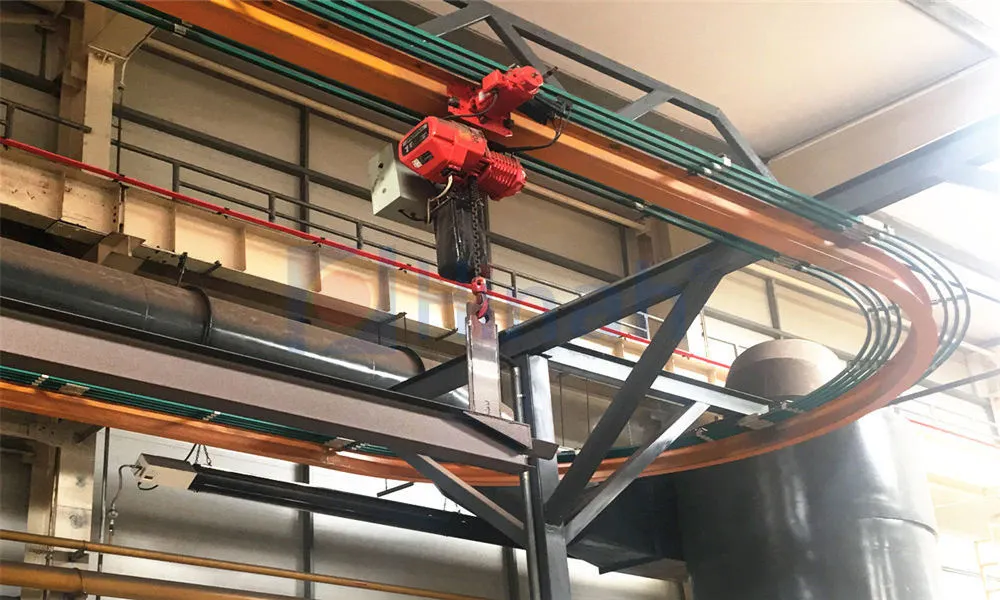
Powder coating conveyor systems are automated material handling setups designed to transport items through various stages of the powder coating process, including pre-treatment, application, curing, and cooling. These systems typically consist of conveyors—such as overhead, belt, or monorail types—that move products along a predefined path. The primary advantage of using powder coating conveyor systems is their ability to maintain a continuous workflow, reducing manual labor and minimizing errors. This results in higher throughput, consistent quality, and improved safety. Industries rely on these systems to handle diverse shapes and sizes, from small components to large assemblies. By integrating with other equipment like spray booths and ovens, powder coating conveyor systems create a seamless production line. Understanding their basic functionality is the first step toward appreciating the value of customization, integration, and cost considerations in industrial applications.
Benefits of a Custom Powder Coating Conveyor System
A custom powder coating conveyor system is tailored to meet specific production requirements, offering flexibility and efficiency that off-the-shelf solutions often lack. One of the key advantages is adaptability to unique spatial constraints or product dimensions. For instance, if a facility has limited ceiling height, a customized overhead conveyor can be designed to optimize vertical space. Additionally, a custom powder coating conveyor system can incorporate specialized features like variable speed controls, automated loading/unloading, or energy-efficient components, which enhance productivity and reduce operational costs. Businesses dealing with high-mix, low-volume production benefit greatly from such systems, as they allow for quick changeovers and minimal downtime. Moreover, a well-designed custom powder coating conveyor system can integrate with existing machinery, ensuring compatibility and scalability as production demands grow. By investing in customization, companies can achieve a higher return on investment through improved throughput, reduced waste, and longer system lifespan. It's crucial to collaborate with experienced powder coating conveyor manufacturers to design a system that aligns with your unique needs, whether you're in aerospace, furniture, or electronics manufacturing.
The Role of Powder Coating Conveyor System Integrators
Powder coating conveyor system integrators play a pivotal role in designing, installing, and optimizing conveyor systems for industrial applications. These professionals act as intermediaries between manufacturers and end-users, ensuring that the system components—such as conveyors, controls, and safety features—work harmoniously. Integrators assess facility layouts, production volumes, and process requirements to recommend the most efficient solutions. For example, they might suggest a modular conveyor design that allows for future expansions or upgrades. Their expertise extends to troubleshooting and maintenance, helping businesses avoid costly disruptions. When selecting powder coating conveyor system integrators, it's important to choose those with a proven track record in your industry. They can provide valuable insights into the latest technologies, such as IoT-enabled monitoring or robotic integration, which enhance system performance. By leveraging the services of skilled integrators, companies can streamline their powder coating operations, reduce implementation time, and ensure compliance with industry standards. This collaboration is especially beneficial for complex projects involving a custom powder coating conveyor system, as integrators coordinate with multiple vendors to deliver a cohesive solution.
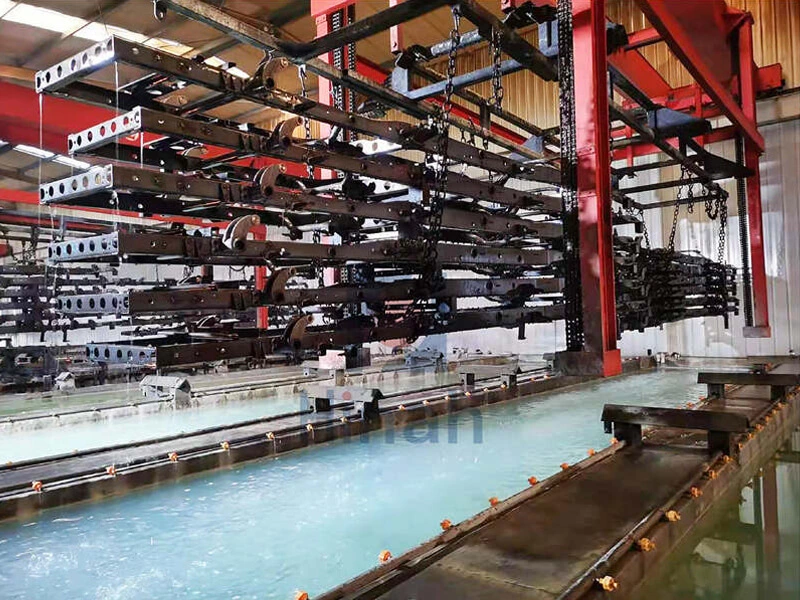
Factors Influencing Powder Coating Conveyor Price
Understanding the powder coating conveyor price is essential for budgeting and decision-making. Several factors contribute to the overall cost, starting with the system type and complexity. For instance, a basic overhead conveyor might be more affordable than a sophisticated monorail system with automated controls. The size and scale of the operation also play a significant role; larger systems with higher capacity command higher prices. Material choices, such as stainless steel for corrosive environments, can increase costs but offer better durability. Additionally, customization features—like specialized hangers or energy recovery systems—add to the powder coating conveyor price. Labor and installation expenses, including site preparation and integration with existing equipment, are another consideration. It's advisable to obtain quotes from multiple powder coating conveyor manufacturers to compare prices and services. On average, a standard system can range from $50,000 to $200,000, while highly customized setups may exceed $500,000. Businesses should also factor in long-term costs, such as maintenance, energy consumption, and potential upgrades. By evaluating these elements, you can make a cost-effective investment that balances initial expenditure with operational efficiency.
Leading Powder Coating Conveyor Manufacturers
Choosing the right powder coating conveyor manufacturers is critical to ensuring reliability, quality, and after-sales support. Reputable manufacturers offer a range of systems, from standard designs to fully customized solutions, and often provide comprehensive services including design, installation, and maintenance. Some well-known manufacturers in the industry include companies like Eisenmann, Durr, and Nordson, which have global presence and extensive experience. These powder coating conveyor manufacturers typically use high-quality materials and advanced engineering techniques to build durable systems that withstand harsh industrial environments. When selecting a manufacturer, consider their industry certifications, customer reviews, and portfolio of past projects. It's also beneficial to assess their innovation capabilities, such as incorporating smart technologies for real-time monitoring and predictive maintenance. Collaborating with established powder coating conveyor manufacturers can simplify the procurement process, as they often work closely with integrators to deliver turnkey solutions. Additionally, many manufacturers offer warranty packages and training programs to help operators maximize system performance. By partnering with a trusted provider, businesses can mitigate risks and ensure their powder coating conveyor systems meet production goals efficiently.
How to Choose the Right System for Your Needs
Selecting the appropriate powder coating conveyor systems involves a thorough analysis of your operational requirements, budget, and future growth plans. Start by assessing your production volume, product types, and available space. For high-volume operations, a continuous conveyor system with automated features might be ideal, whereas batch processes could benefit from a modular design. Engage with powder coating conveyor system integrators early in the planning phase to evaluate feasibility and identify potential challenges. Consider the total cost of ownership, not just the initial powder coating conveyor price, including maintenance, energy use, and spare parts. It's also wise to request demonstrations or case studies from powder coating conveyor manufacturers to see systems in action. Look for flexibility in design—for example, a system that allows easy reconfiguration for new product lines. Safety and compliance with regulations, such as OSHA standards, should be prioritized to protect workers and avoid penalties. Finally, seek references from other businesses in your industry to learn from their experiences. By taking a methodical approach, you can invest in a powder coating conveyor system that enhances productivity, reduces costs, and supports long-term success.
Powder coating conveyor systems are indispensable for modern manufacturing, offering efficiency, consistency, and environmental benefits. From exploring the advantages of a custom powder coating conveyor system to understanding the impact of powder coating conveyor price, this article has covered key aspects to help you navigate the selection process. Collaborating with experienced powder coating conveyor system integrators and reputable powder coating conveyor manufacturers ensures a seamless implementation tailored to your needs. As technology advances, these systems will continue to evolve, incorporating innovations like automation and sustainability features. By staying informed and proactive, businesses can leverage powder coating conveyor systems to stay competitive and achieve operational excellence. Remember, the right system isn't just about cost—it's about value, reliability, and scalability.
Frequently Asked Questions (FAQs)
Q1: What is the typical lifespan of a powder coating conveyor system?
A1: The lifespan of a powder coating conveyor system depends on factors like usage, maintenance, and environmental conditions. With proper care, including regular cleaning and part replacements, these systems can last 15–20 years or more. High-quality components from reputable powder coating conveyor manufacturers often extend durability.
Q2: How can I reduce the powder coating conveyor price without compromising quality?
A2: To reduce costs, consider opting for a modular design that allows phased investments, sourcing from multiple powder coating conveyor manufacturers for competitive bids, and focusing on energy-efficient models to lower long-term expenses. Additionally, working with powder coating conveyor system integrators can help identify cost-saving opportunities during design.
Q3: What maintenance is required for powder coating conveyor systems?
A3: Regular maintenance includes inspecting chains and belts for wear, lubricating moving parts, cleaning accumulation areas, and checking electrical components. Scheduling preventive maintenance with integrators or manufacturers can minimize downtime and extend system life.
Q4: Can a custom powder coating conveyor system be integrated with existing equipment?
A4: Yes, a custom powder coating conveyor system is often designed for seamless integration with existing machinery, such as spray booths or ovens. Powder coating conveyor system integrators can assess compatibility and make necessary adjustments to ensure smooth operation.
Q5: How do I choose between overhead and floor-based conveyor systems?
A5: The choice depends on facility layout and product handling needs. Overhead systems save floor space and are ideal for heavy items, while floor-based conveyors offer easier access for maintenance. Consulting with powder coating conveyor manufacturers can help determine the best fit based on your specific requirements.
Q6: What safety features should I look for in powder coating conveyor systems?
A6: Key safety features include emergency stop buttons, guards for moving parts, overload protection, and compliance with industry standards like ANSI or OSHA. Reputable powder coating conveyor system integrators often incorporate these into their designs to ensure operator safety.
Q7: Are there eco-friendly options for powder coating conveyor systems?
A7: Yes, many modern systems include energy-efficient motors, reduced emission designs, and recycling mechanisms for overspray. Discuss sustainability goals with powder coating conveyor manufacturers to explore options like solar-powered components or water-saving pre-treatment stages.


